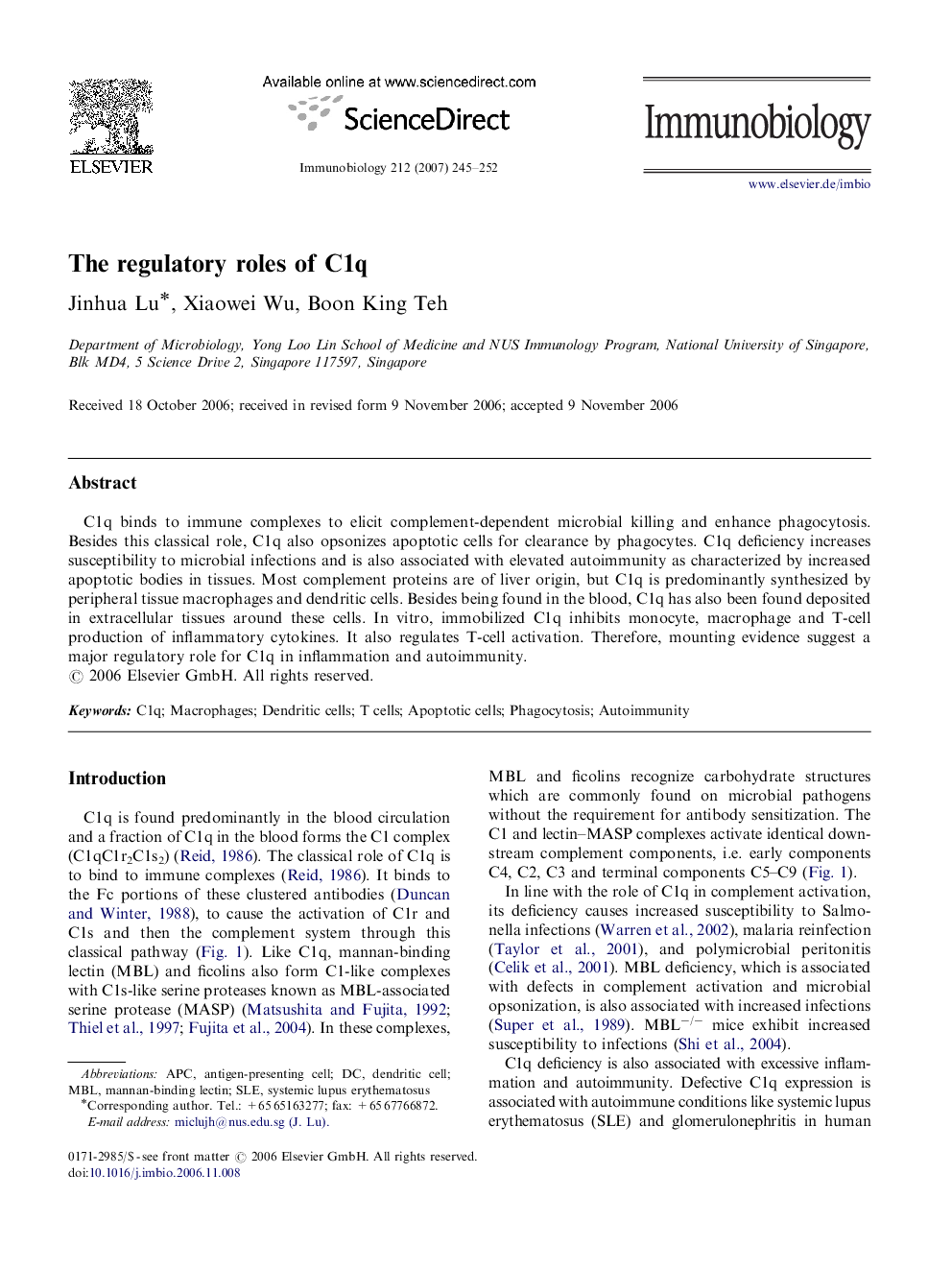| Article ID | Journal | Published Year | Pages | File Type |
|---|---|---|---|---|
| 8472155 | Immunobiology | 2007 | 8 Pages |
Abstract
C1q binds to immune complexes to elicit complement-dependent microbial killing and enhance phagocytosis. Besides this classical role, C1q also opsonizes apoptotic cells for clearance by phagocytes. C1q deficiency increases susceptibility to microbial infections and is also associated with elevated autoimmunity as characterized by increased apoptotic bodies in tissues. Most complement proteins are of liver origin, but C1q is predominantly synthesized by peripheral tissue macrophages and dendritic cells. Besides being found in the blood, C1q has also been found deposited in extracellular tissues around these cells. In vitro, immobilized C1q inhibits monocyte, macrophage and T-cell production of inflammatory cytokines. It also regulates T-cell activation. Therefore, mounting evidence suggest a major regulatory role for C1q in inflammation and autoimmunity.
Keywords
Related Topics
Life Sciences
Biochemistry, Genetics and Molecular Biology
Cell Biology
Authors
Jinhua Lu, Xiaowei Wu, Boon King Teh,
